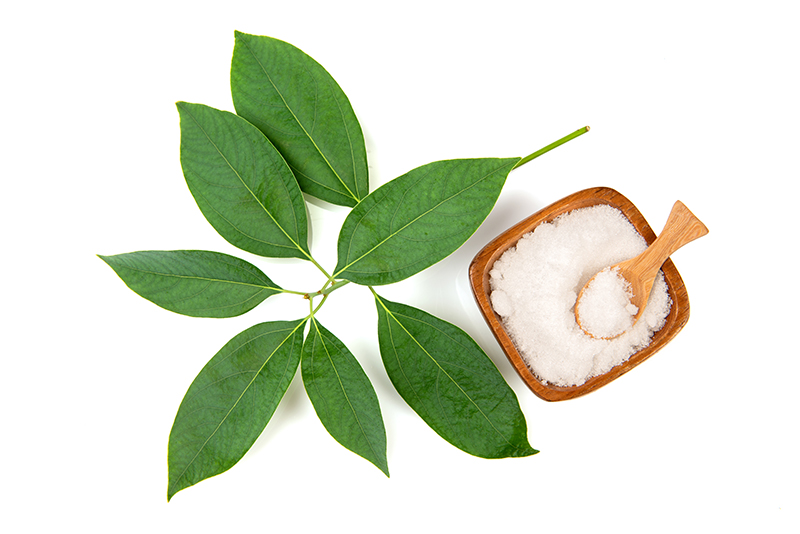
Camphor has a wide range of uses from medicinal to being used as a pest repellent. Coming from the wood of a camphor tree, It is popular because of its cooling and numbing effects and comes in various forms, such as oils, creams, and ointments.
- Medicinal: Applied to the skin for pain relief and itching and as a counterirritant.
- Respiratory Relief: Inhaled in steam to relieve coughs and congestion.
- Anti-inflammatory: Used in ointments to reduce inflammation and swelling.
- Pest Repellent: Camphor blocks are used to repel insects and moths.
- Culinary: Camphor is used in cooking and as a flavoring agent in some cultures.
What is Camphor?
Camphor is a white, crystalline substance derived from the wood of the camphor tree (Cinnamomum camphora) and certain other trees. It has a strong, aromatic odor and a slightly bitter taste. Known for its cooling and numbing effects, camphor has been used for centuries in various medicinal and industrial applications.
What Forms Does Camphor Come In?
Camphor is available in several forms.
- Camphor Oil: Used in aromatherapy and topical applications. It’s important to follow instructions on the product and dilute camphor if required by using a carrier oil.
- Camphor Blocks: Commonly used for pest control and in religious ceremonies.
- Camphor Tablets: Utilized for their medicinal properties and in some traditional practices.
- Camphor Creams and Ointments: Applied topically for pain relief and skin conditions.
Benefits of Camphor
Camphor offers numerous benefits, including providing a cooling sensation that alleviates muscle and joint pain, treating skin conditions such as eczema and fungal infections, and helping clear nasal congestion to soothe the respiratory tract. Additionally, the aroma of camphor oil has calming properties that can reduce stress and anxiety. Camphor also has antimicrobial effects, which help prevent infections.
Historical Uses of Camphor
Historically, camphor has been valued for its medicinal and preservative properties. Ancient Chinese and Indian medicine utilized camphor for its antiseptic and anti-inflammatory properties. In the Middle Ages, camphor was essential in balms and ointments used to treat the plague. It was also used in embalming procedures due to its preservative qualities.
Who Should Not Use Camphor?
Despite its many benefits, camphor is not suitable for everyone. Pregnant and nursing women should avoid it due to potential adverse effects on pregnancy and lactation. Young children are at risk of poisoning if camphor is ingested or absorbed through the skin. Individuals with epilepsy should steer clear as camphor may trigger seizures. Additionally, those allergic to camphor should avoid its use to prevent allergic reactions.
Camphor is Versatile and Useful
Camphor is a versatile substance with a rich history of use in medicine, industry, and daily life. Its various forms make it accessible for different applications, from relieving pain and respiratory issues to repelling pests. However, it is essential to use camphor responsibly, considering its potential side effects and contraindications. As with any natural remedy, it is advisable to consult with a healthcare professional before incorporating camphor into your routine.
#1 White Flower Analgesic Balm, 0.67 oz, Solstice Medicine Company

Free Shipping
on orders over $49*Sorry, coupons can't be combined.